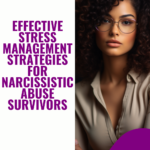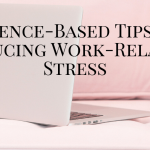A job loss is extremely stressful at anytime. But today considering the economy and the current job market ,one of the most challenging personal crises an individual may have to face is coping with job loss. Unemployment, divorce and the death of a loved one are considered to be the most stressful events that can happen during a person’s lifetime.
The loss of personal identity associated with the job can be more devastating than the loss of income. There are problems to be dealt with, questions to be answered and decisions to be made. You must recognize this and admit that there is likely to be a major change in your life. The threat to your personal and family security is the biggest change.
Fears Associated with Transitioning
- What will I do with myself?
- What will others think of me if I fail?
- How am I going to define myself?
- Will I/we survive financially?
- Will I be able to get the perfect job for me?
Ask Yourself the Following
- What actually happened to cause me to lose my job?
- How did I receive news of the lay off?
- How did I react to the news?
- How long was I in that particular job?
- What was my relationship with my boss, my subordinates and my colleagues?
Coping With Stress
While you may not be able to prevent a job loss, you may be able to use some of the following coping strategies to make the loss easier to handle.
Give yourself time:
Allow yourself appropriate time to adjust to the new realities.
Embrace change:
Embrace the quote by Louis Pasteur, “Change favors the prepared mind.” Remind yourself that change can mean growth and that rigidity is counterproductive. Develop the ability to be flexible.
Pursue support from others:
You cannot do everything alone. Your family and loved ones can help provide the moral and emotional support that is needed.
- Talk with family and friends.
- Involve your family in the decision making process.
Live in the present:
People can carry a huge burden called guilt and anger about experiences. This will rob you of energy and create more stress.
Treat yourself right!
Exercise. Eat a balanced diet. Get plenty of sleep. Read a good book. Go to the movies. Find fun and interesting things to do that don’t cost much.
Know your limitations:
You cannot change others or circumstances, only yourself. Re-evaluate your direction:
Figure out your next steps:
Make a job search plan. Use multiple resources.
Implement your plan:
This is your new job until you have a new position you want. Being actively engaged in your job search will bring you nearer your goals and will go a long way toward alleviating stress.
Seek professional help:
If the stress becomes overwhelming and you are unable to function in a fairly normal way, seek help from your family doctor, clergy, a psychologist or social worker, or a hospital or community mental health center.
You’ll find you have a tremendous responsibility as you decide on your next career, determine your financial requirements, select health and life insurance plans, sort out your benefits and take steps to secure your future goals. It may take some time, however, if you target desired outcomes, plan accordingly and work diligently, you’ll, eventually, achieve your goals. Fortunately, you’re not alone.




Great advice and information. I would add, have faith in yourself and that everything will be okay. Set goals and aggressively follow them and you will feel confident and blessings will follow.